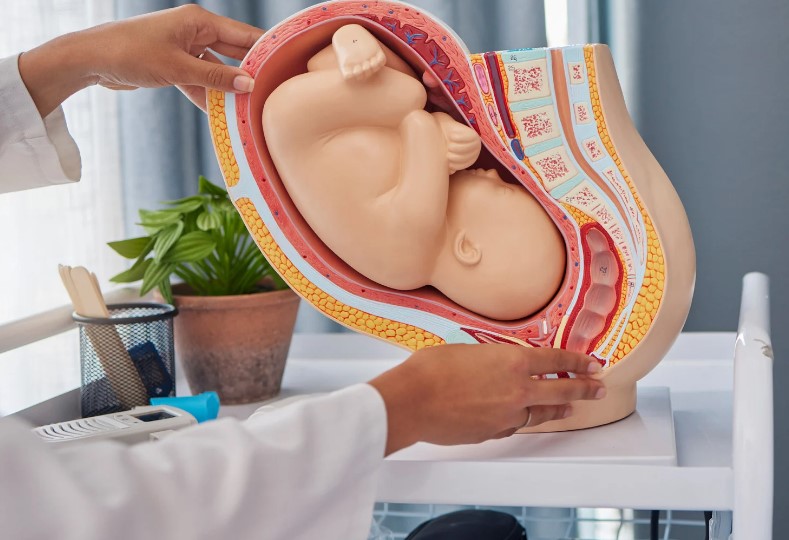So, you’re gearing up for baby number two (or maybe number three, four, or beyond)! First of all, congratulations! Whether your first childbirth experience was smooth sailing or a bit of a rollercoaster, it’s totally normal to wonder what round two will be like. Will it be different? Easier? Harder? What are some common questions and concerns about having a second baby.

Is It Going to Be Faster?
Yes, usually! Many parents find that the second labor is shorter than the first. Your body has been through this before, so it often knows what to do more quickly. The cervix tends to dilate faster, and pushing can be quicker too. But remember, every pregnancy and birth is unique. So, while many find the second time around speedier, it’s not a guarantee.
Will It Hurt Less?
The intensity of labor pain can vary from one birth to another, even for the same person. Some moms report that the contractions are more manageable the second time because they know what to expect and may feel more in control. Others feel that each labor is its own experience. Pain management techniques that worked for you the first time (or didn’t) might be different this time around.
Am I Going to Tear Again?
If you had a tear or needed an episiotomy the first time, you might be concerned about it happening again. The good news is, many women experience less tearing during subsequent deliveries. Your tissues may be more elastic, and your body may be more adept at the birthing process. Still, it’s something to discuss with your healthcare provider.
What About Recovery?
Recovery can also vary. You might find that your body bounces back faster because it’s been through the process before. On the other hand, you now have a toddler or older child to take care of, which can make rest and recovery a bit more challenging. Accept all the help you can get, and don’t hesitate to ask for more!
Emotional Rollercoaster: How Will I Feel?
The emotional side of having a second child can be quite different. You might feel more confident since you’ve been through this before. However, it’s also normal to have worries about how your first child will adjust to the new sibling or how you’ll manage the demands of two children. Remember, these feelings are all valid. Take it one day at a time and lean on your support system.
Breastfeeding: Easier or More Challenging?
If you plan to breastfeed, you might find it easier the second time around. You’ve learned a lot from your first experience, and your body has muscle memory. However, every baby is different, so there could be new challenges. Trust yourself and seek support from lactation consultants if needed.
Childbirth After a C-Section: What to Expect
If your first baby was born via C-section, you might be wondering what your options are for the second birth. Many women can have a successful vaginal birth after cesarean (VBAC). However, this depends on several factors, including the type of incision made during the C-section and your overall health.
- VBAC: A VBAC can offer a quicker recovery time and a shorter hospital stay. It’s essential to discuss this option with your healthcare provider to understand the benefits and risks.
- Repeat C-Section: Some women may opt for or require a repeat C-section. This could be due to medical reasons or personal preference. Recovery from a second C-section might be similar to your first, but some women find it easier as they know what to expect.
Why Some Providers Will Not Induce Labor After a C-Section
Inducing labor after a previous C-section carries certain risks, which is why some healthcare providers may be hesitant to do so. The primary concern is the risk of uterine rupture. This is a rare but serious complication where the scar from the previous C-section can tear open during the intense contractions caused by induction. Uterine rupture can pose significant risks to both the mother and the baby. Therefore, providers often recommend allowing labor to start naturally if you’re attempting a VBAC, or they may advise scheduling a repeat C-section.
Bonding with Baby Number Two
You might worry about how you’ll bond with your new baby while still caring for your firstborn. The love you have for your first child won’t diminish; your heart has plenty of room for both (or all) of your children. Try to carve out special one-on-one time with each child to foster those unique bonds.
Preparing Your Firstborn
Preparing your firstborn for the new arrival is key. Talk to them about the baby, read books about becoming a big sibling, and involve them in the preparations. This can help ease the transition and make them feel included.
Embracing the Journey Ahead
Every childbirth experience is unique, just like every child. Whether your second labor is faster, your recovery quicker, or your emotions a bit of a whirlwind, know that you’re not alone. Reach out to others, share your concerns with your healthcare provider, and most importantly, be kind to yourself.
Here’s to another beautiful journey into parenthood!

